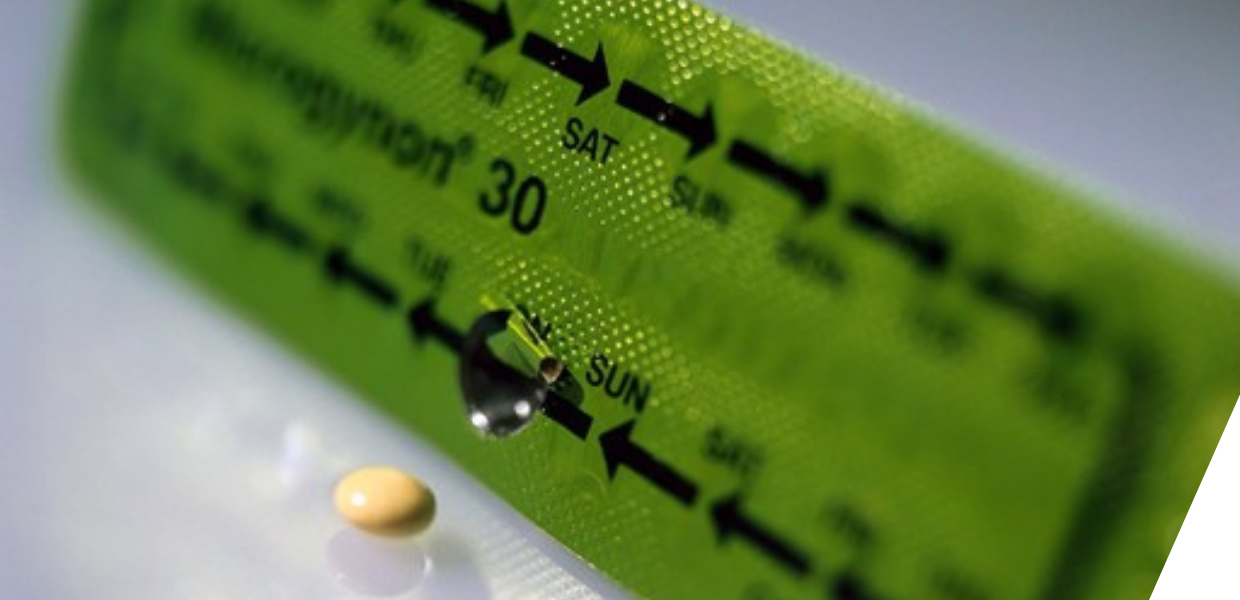Engaging with cultural heritage through Europeana XX
In 2021, Masters students of Cultural Studies at KU Leuven were assigned a project to create and promote an online exhibition. Encouraged by their course mentors Frederik Truyen and Sofie Taes, partners in the Europeana XX, Century of Change project, the students considered: what could be seen as a 20th century game changer?
The group of six students identified the first contraceptive pill as one of the most significant inventions of the 20th century. This had transformed the lives of millions of people. They decided to curate an exhibition exploring the history of birth control and the impact that modern contraception had on improving the health and well-being of women around the world.
The student team described how, ‘As an international group of six women, it was our primary goal to tell a story women all over the world could relate to. Almost immediately we agreed that the contraceptive pill was the topic to go with: the pill was of such importance in the 20th century that it was definitely a game changer. The pill was empowering and still contributes a great deal to the ongoing empowerment of women and the fight for equal rights.’
Their digital exhibition ‘The Pill Expo - A game changer of the 20th century ’ examines not only the invention of the pill but also the history of birth control and pioneering birth control activists, as well as the legal, religious or health-related constraints to contraception. It was launched in April 2021 and uses predominantly openly licensed material from the Europeana website.
‘The extensive collections on Europeana inspired us greatly. Thanks to the search engine we could browse the collection easily,’ says one of the curators, Margot Melsens. ‘Next to that, the large number of freely usable photographs were very advantageous’.
‘The Pill’ comes to Europeana
Europeana inspires people to engage with, curate and reuse the content shared by cultural heritage institutions across Europe. ‘The Pill Expo’, which includes posters and photographs from diverse collections found in Europeana, is a great addition to Europeana’s online exhibitions, and has been added to mark Women’s History Month.
To bring the exhibition onto the Europeana website required some adjustments and also saw an expansion of the exhibition’s content. Through this work, the exhibition can be shared with Europeana’s audiences, broadening the reach of the student project, particularly as it has been translated into more languages. The exhibition is also available now in French, German, Italian, Polish, Romanian and Spanish.
To bring ‘The Pill Expo’ on to the Europeana website, Europeana’s Collections Engagement Team worked with Sofie Taes, Europeana XX project editorial coordinator and student mentor, to adjust the exhibition’s format, tone of voice and styling. The original exhibition has also been enriched with audiovisual material allowing the viewers to explore archival footage. ‘Audiovisual collections have been at the core of Europeana XX ', says Sofie Taes. 'They are a unique expression of recent history that often remains under the radar when it comes to the caring and sharing of cultural heritage.'
International Women’s Day
The exhibition launched on Europeana on 8 March, International Women's Day. The day of a global celebration of women’s achievements feels like a perfect moment to explore the story of emancipation through effective birth control.
'I grew up in a traditional, conservative environment where the perception of the pill has never been very comprehensive or has been biased. This topic gave me a chance to break the stereotypes', says contributing student Xinghan Lou, responsible for the communication and visual design in the student team. 'For me, the process of exploring The Pill was like a microcosm of the process of shattering personal prejudices about something unfamiliar.'
The exhibition aims to inspire Europeana’s visitors to reflect on the impact the invention of the pill had on society, and women in particular, as well as to bring the work of students engaging in their digital cultural heritage to wider audiences.



